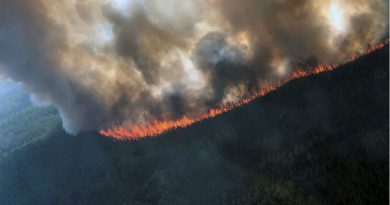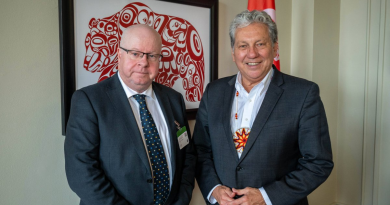Blog – Pole to Pole: India’s Arctic White Paper

India was one of the five Asian governments which were accepted by the Arctic Council as formal observers in 2013, along with China, Japan, Singapore and South Korea. Although Beijing received most of the international attention after that announcement, due to China’s size and concerns at the time about whether Beijing would soon engage in revisionist policies in the Arctic, India’s inclusion was nonetheless significant. As with Singapore, the state is about as far away from the Polar Regions, geographically, as possible.
Nonetheless, from a policy viewpoint, India had been seeking to develop its expertise at both poles for years, and has often referred to the Himalayas, a ‘third pole’, as part of the basis for its Arctic and Antarctic interests. This mountain range, which straddles northern India as well as parts of China and Pakistan, and dominating the geography of Bhutan and Nepal, includes the world’s highest peak, Mount Everest. As with the Polar Regions, the Himalayas are also losing ice at an accelerated rate due to climate change, raising questions about the future of an expanse which provides fresh water to millions of people in Asia.
As with many other non-Arctic states which have deepened their interests in the region over the past few decades, India has been engaging in extensive scientific diplomacy in the far north. This was undertaken to better understand the connections between the Arctic and issues closer to home, and to have a greater say in a region which is attracting global attention not only due to its environmental changes but also questions about its emerging resources and the possibility of a more pronounced geopolitical competition for Arctic influence.
The “Asia-Arctic Five”
As with many other countries, India maintains a permanent research base at Svalbard. The Himadri station is based at Ny-Ålesund on the island group, and has been operating since 2008. The Himadri facilities, and India’s Antarctica stations, Bharati, opened in 2012 and Maitri, in place since 1989, all operate under the aegis of the country’s National Centre for Polar and Ocean Research, based in Goa. In 2014, India also launched IndARC, an underwater moored observatory, constructed to examine local maritime conditions and their connections with monsoon activities, in Svalbard’s Kongsfjorden Fjord.
This month, India became the fourth country within the ‘Asia-Arctic Five’ in the Arctic Council to publish to governmental white paper on its regional policies, (Singapore has yet to do so). The document, in draft format, was recently posted via India’s National Informatics Centre for public comments, which can be submitted online until 26 January before the final version is confirmed.
As the covering letter accompanying the document explained, India wished to ‘leverage’ its overall scientific expertise, as well as specific studies of the Himalayas, to nurture its role in the Arctic and to ensure that future economic developments in the region take place in a sustainable fashion. Unlike some recent regional policy documents by other non-Arctic governments, India’s White Paper did not directly address the subject of hard / military security in the Arctic, and instead there was a focus on the current and future development of relevant knowledge bases and expertise in diverse fields of Arctic science.
Science and research focus
The paper summarised India’s Arctic interests as resting on five pillars: science and research, cooperation and economic and human development, promotion of transportation and connectivity, governance and global cooperation, and national capacity building. In regards to India’s scientific programmes in the region, the document noted that Indian representatives were active in three of the Working Groups overseen by the Arctic Council, (namely the programmes dedicated to Arctic Contaminants Action, Arctic Monitoring and Assessment, and the Conservation of Arctic Flora and Fauna).
Beyond the Council itself, India’s activities in climate change research and renewable energy studies, as well as current and future Track II initiatives, including the Arctic Circle and Arctic Frontiers conferences as well as the International Arctic Science Committee (IASC), were also mentioned as part of the country’s regional credentials.
In regards to emerging Indian goals in the Far North, there was an emphasis on further development of cooperation initiatives in climate change research, education, ‘third pole’ interests, and sustainable development. There was also much attention in the policy statement about the connections between the Arctic and space activities, given India’s growing interest in developing its outer space capabilities, but also in cooperating with Arctic actors to develop satellite monitoring of regional land and maritime spaces as well as improved internet connectivity.
‘Light touch’ on Arctic politics
The White Paper generally kept to neutral ground on the subject of optimal participation of non-Arctic states in Arctic affairs, (although there was the notation that ‘India regards the Arctic as the common heritage of mankind’). This stance was in noteworthy contrast to China’s longstanding ‘near-Arctic state’ policies in the region, (which earlier this week were subject to an eleventh-hour and 59th minute rebuke by outgoing US Secretary of State Mike Pompeo, criticism which was subsequently brushed off as irrelevant by the Chinese Foreign Ministry).
India’s policies towards Arctic governance, as outlined in its document, explained its adherence to the Arctic Council and local legal regimes, including the Law of the Sea and the Svalbard Treaty, (which then-British India signed in 1920). The Indian government also affirmed that it would continue to seek out new means of improving multilateral cooperation with Arctic states in various areas.
However, although the document reflected a light touch on the subject of Arctic politics and Indian participation in regional governance, the government of Narendra Modi had previously signalled an interest in developing greater policy visibility in the Far North. For example, when Prime Minister Modi met with Russian President Vladimir Putin in Vladivostok in September 2019, their joint statement included India’s wish to play a greater role in the Arctic Council, and to cooperate more closely with Moscow in Arctic affairs. One editorial in an Indian news service published at that time even suggested that an ‘Indo-Arctic policy’, with Russian cooperation, could serve as a balancer to American and Chinese strategies in the region. As with other non-Arctic governments seeking to increase their visibility in the circumpolar north, separating science from politics in that part of the world has become an ever more complex endeavour.
Related stories from around the North:
Canada: Canada, the HFO ban & great power competition in the North – Arctic news roundup 2020 with Mathieu Landriault, Eye on the Arctic
Estonia: Estonia ready to contribute to global climate fight through Arctic Council if observer application approved, says president, Eye on the Arctic
Russia: Top Russian official on Arctic affairs resigns, The Independent Barents Observer
United States: Biden’s pick for Interior secretary is Indigenous and a passionate foe of drilling in Arctic Refuge, Alaska Public Media



